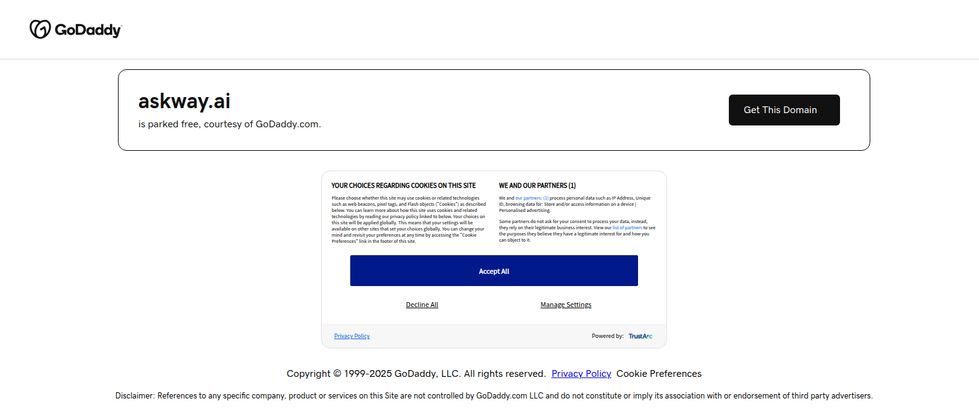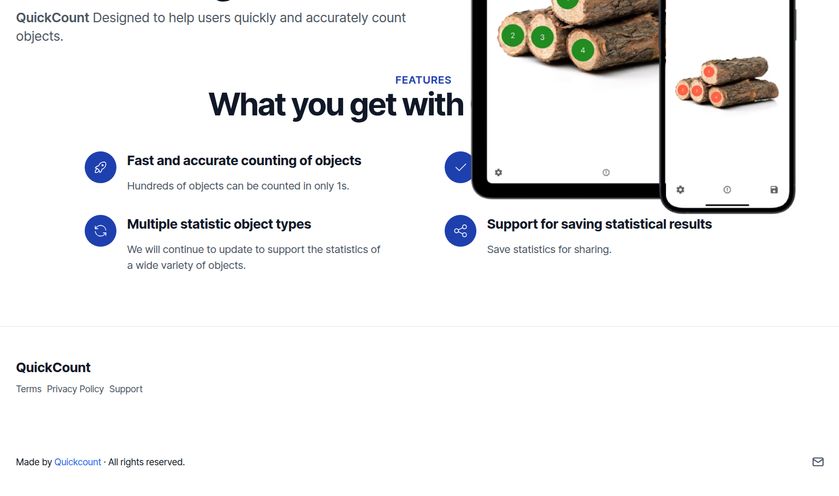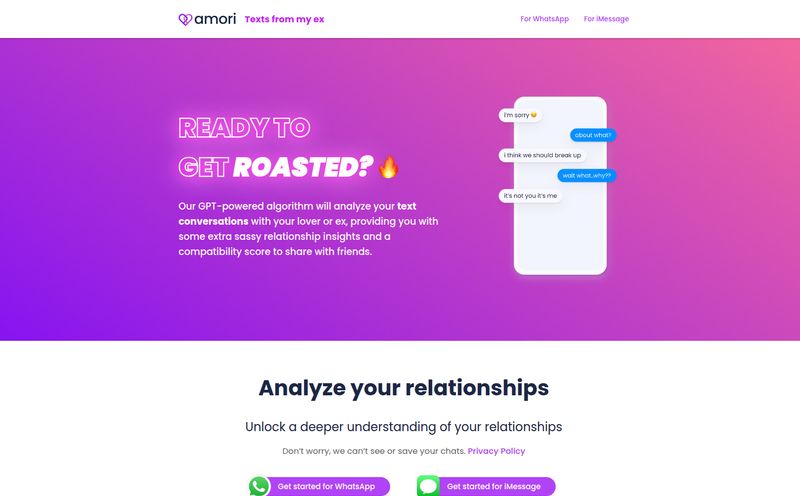In the world of SEO and digital marketing, we live through tech gold rushes. Remember the dot-com bubble? The mobile app explosion? Well, right now, we’re knee-deep in the AI stampede. Every single day, a new tool pops up promising to be the ultimate game-changer, the one AI to rule them all. It's exciting. It’s also… a lot.
And just as quickly as they appear, some of them vanish. They become digital ghosts, leaving behind nothing but a parked domain page and a few Reddit threads asking, “Hey, whatever happened to…?”
Today, I want to talk about one of those ghosts: ASKWay AI. It popped onto my radar as a super-promising all-in-one AI browser extension. And then, poof. Gone. So, let's put on our detective hats and piece together what ASKWay was, what it promised, and where it might have gone.
So, What Was the Big Idea Behind ASKWay?
The pitch was simple and, I'll admit, very tempting. ASKWay was designed to be an AI-powered Swiss Army knife that lived right in your browser. Powered by the same OpenAI tech behind ChatGPT and the mighty GPT-4, it wasn't just another chatbot. It aimed to be a true assistant, integrating itself into your daily workflow, from searching and browsing to writing and research. The goal was to have one extension that did the job of five or six different tools. In a world where my Chrome browser sometimes has more extensions than a high-rise apartment building, the idea of consolidation was music to my ears.
The Feature Set That Made It Stand Out
It’s one thing to have a good idea, but it’s another to have the features to back it up. And on paper, ASKWay had a seriously impressive lineup. It wasn't just a rehash of stuff we'd already seen.
A Sidebar That Was Actually Your Sidekick
The core of the experience was a sidebar. Nothing new there, right? But the idea was to have a persistent conversational partner that had context of the page you were on. You could be reading a dense report on Q3 traffic trends and just ask the sidebar, “Summarize the key takeaways from this page in three bullet points.” Or, “Explain the term ‘programmatic advertising’ like I’m five.” That kind of immediate, contextual help is incredibly powerful.
Reading, Writing, and Translating on the Fly
This is where it got really interesting for me. The tool included a whole suite of content-focused features:
- AI Writing: From drafting emails to brainstorming blog post outlines, it was meant to be a creative partner. We’ve all used ChatGPT for this, but having it integrated into the browser, ready to help you respond to a client email in Gmail without switching tabs? That’s a real time-saver.
- ChatPDF: This one is a personal favorite feature in any tool. The ability to upload a PDF—say, a competitor's whitepaper or a technical SEO audit—and just chat with it is amazing. “What does this document say about backlink strategy?” “Find all mentions of ‘Core Web Vitals’.” It turns static documents into interactive databases.
- Translation: It also offered PDF and web page translation. In our global market, being able to quickly understand content from different regions without a clunky copy-paste into Google Translate is a small but significant quality-of-life improvement.
The Big Mystery: A Visit to a Digital Ghost Town
So, with all this promise, where is it now? Well, this is the strange part. If you go to `askway.ai` today, you won’t be greeted by a slick landing page. You’ll see this:

Visit ASKWay
A parked domain page, courtesy of GoDaddy. Oof. In the fast-moving tech world, that’s the equivalent of a “Closed for Business” sign hanging crookedly on the door of an abandoned shop. It’s a digital ghost town.
What does this mean? It's hard to say for sure, but we can speculate. Did the developers run out of funding? It happens. The AI space is expensive. Was it an “acqui-hire,” where a larger company bought the team and tech and shuttered the original product? Also very possible. Or maybe they’re in the middle of a major rebrand and will relaunch under a new name. Whatever the reason, the ASKWay project as we knew it seems to be on an indefinite—and likely permanent—hiatus.
“For every major AI success story we see, there are probably a dozen promising projects that quietly fade away. It’s the nature of the beast.”
What About the Price Tag?
This is another piece of the puzzle. There was never any clear pricing information available for ASKWay. This usually points to a tool being in a free beta phase, hoping to build a user base before introducing paid tiers. The promise of an ad-free experience was a huge plus, suggesting they were probably planning a freemium model—a solid free version with a more powerful Pro plan for a monthly subscription. But, we'll likely never know for sure.
Looking Back: The Good and The Not-So-Good
Even though it’s gone, we can still look at its potential. The major advantage was its all-in-one nature. Having ChatGPT-4, web access, PDF tools, and writing assistance in one clean, ad-free package that worked on all browsers was a fantastic value proposition. It was ambitious.
On the flip side, one of the cons was right there in its DNA: a potential over-reliance on AI. And, as the parked domain proves, the service could be—and was—suspended, leaving users in the lurch. There was also no mention of any offline functionality, making it entirely dependent on a stable internet connection and their servers being online. Which, clearly, became an issue.
So, What Can You Use Instead of ASKWay?
The story of ASKWay is a bit of a bummer, but don't worry, the dream of an all-in-one AI browser assistant is very much alive and well. If you were excited by what ASKWay promised, here are a few fantastic, and more importantly, active alternatives you can check out right now:
- Monica: This is probably one of the closest spiritual successors. It uses GPT-4, has a sidebar, can read articles, watch YouTube videos, and chat with PDFs. It’s a very robust and well-maintained tool.
- MaxAI.me: Another powerhouse. It positions itself as a way to use your own OpenAI API key (or use their free quotas) across the web. It's incredibly fast and works seamlessly inside things like Gmail, Google Docs, and social media.
- Microsoft Edge Copilot: If you use the Edge browser, you already have a powerful AI assistant built right in. It’s powered by OpenAI's latest models and is deeply integrated into the browser for summarizing pages, drafting content, and more. It's surprisingly good.
A Final Thought on Digital Ghosts
The rise and fall of a tool like ASKWay is a perfect snapshot of the current AI industry. It’s a chaotic, exciting, and sometimes ruthless place. It serves as a good reminder to not get too attached to any single new tool, especially in its early days. But it also shows the incredible innovation happening. The ideas behind ASKWay were solid, and they live on in other products that are pushing the boundaries every day.
So, pour one out for ASKWay AI—a promising idea that became a ghost in the machine. Now, back to testing the next big thing.
Frequently Asked Questions
- What was ASKWay AI?
- ASKWay AI was a planned all-in-one browser extension powered by OpenAI's technology, including ChatGPT and GPT-4. It was designed to act as an AI assistant for tasks like advanced search, article reading, AI writing, and chatting with PDF files.
- Is the ASKWay AI extension still available?
- No, it appears ASKWay AI is no longer available. Its official domain, askway.ai, is currently parked and inactive, suggesting the project has been discontinued or suspended indefinitely.
- What were the main features of ASKWay AI?
- ASKWay promised a rich feature set, including a conversational AI sidebar, web and PDF translation, an AI writer for emails and other content, advanced search capabilities with live web access, and the ability to interact with PDF documents via chat.
- Was ASKWay AI free?
- There was no official pricing information released. It was likely in a free beta phase with the intention of introducing paid plans later. It did promise an ad-free experience for users.
- Are there any good alternatives to ASKWay AI?
- Yes, absolutely. The AI browser extension market is thriving. Excellent alternatives that offer similar or even more advanced features include Monica, MaxAI.me, and the built-in Microsoft Edge Copilot.



